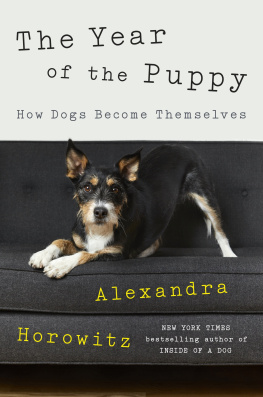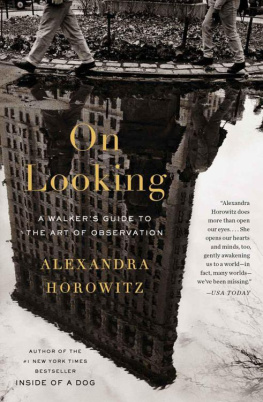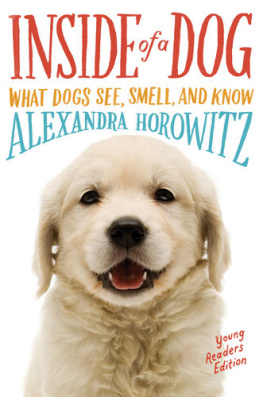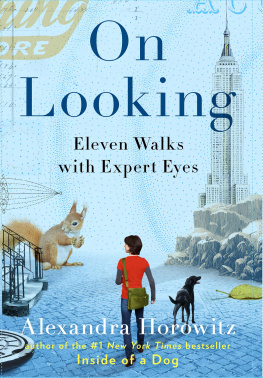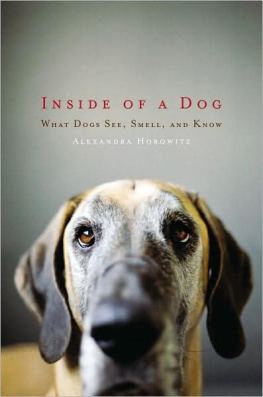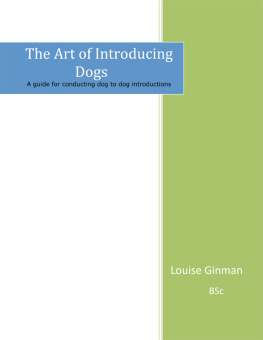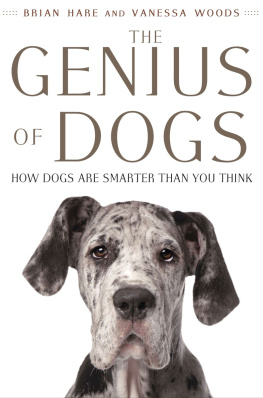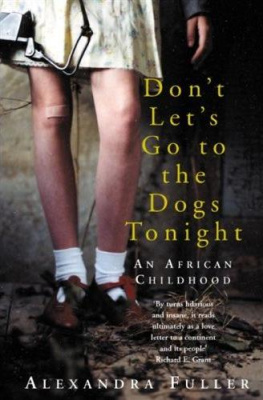Alexandra Horowitz - The Year of the Puppy : How Dogs Become Themselves
Here you can read online Alexandra Horowitz - The Year of the Puppy : How Dogs Become Themselves full text of the book (entire story) in english for free. Download pdf and epub, get meaning, cover and reviews about this ebook. year: 2022, publisher: Penguin Publishing Group, genre: Detective and thriller. Description of the work, (preface) as well as reviews are available. Best literature library LitArk.com created for fans of good reading and offers a wide selection of genres:
Romance novel
Science fiction
Adventure
Detective
Science
History
Home and family
Prose
Art
Politics
Computer
Non-fiction
Religion
Business
Children
Humor
Choose a favorite category and find really read worthwhile books. Enjoy immersion in the world of imagination, feel the emotions of the characters or learn something new for yourself, make an fascinating discovery.
- Book:The Year of the Puppy : How Dogs Become Themselves
- Author:
- Publisher:Penguin Publishing Group
- Genre:
- Year:2022
- Rating:3 / 5
- Favourites:Add to favourites
- Your mark:
- 60
- 1
- 2
- 3
- 4
- 5
The Year of the Puppy : How Dogs Become Themselves: summary, description and annotation
We offer to read an annotation, description, summary or preface (depends on what the author of the book "The Year of the Puppy : How Dogs Become Themselves" wrote himself). If you haven't found the necessary information about the book — write in the comments, we will try to find it.
The Year of the Puppy : How Dogs Become Themselves — read online for free the complete book (whole text) full work
Below is the text of the book, divided by pages. System saving the place of the last page read, allows you to conveniently read the book "The Year of the Puppy : How Dogs Become Themselves" online for free, without having to search again every time where you left off. Put a bookmark, and you can go to the page where you finished reading at any time.
Font size:
Interval:
Bookmark:
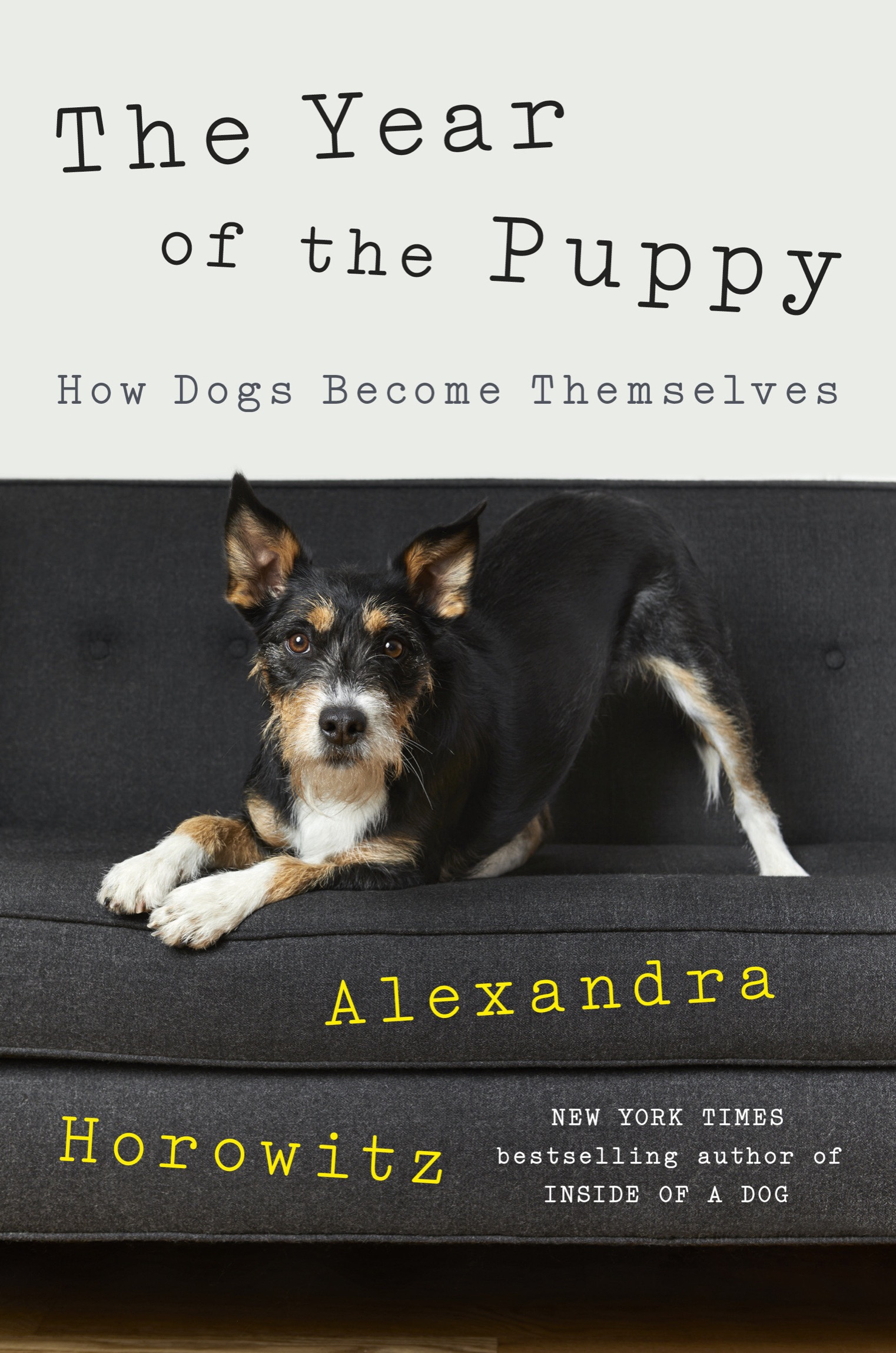
Inside of a Dog
On Looking
Being a Dog
Our Dogs, Ourselves
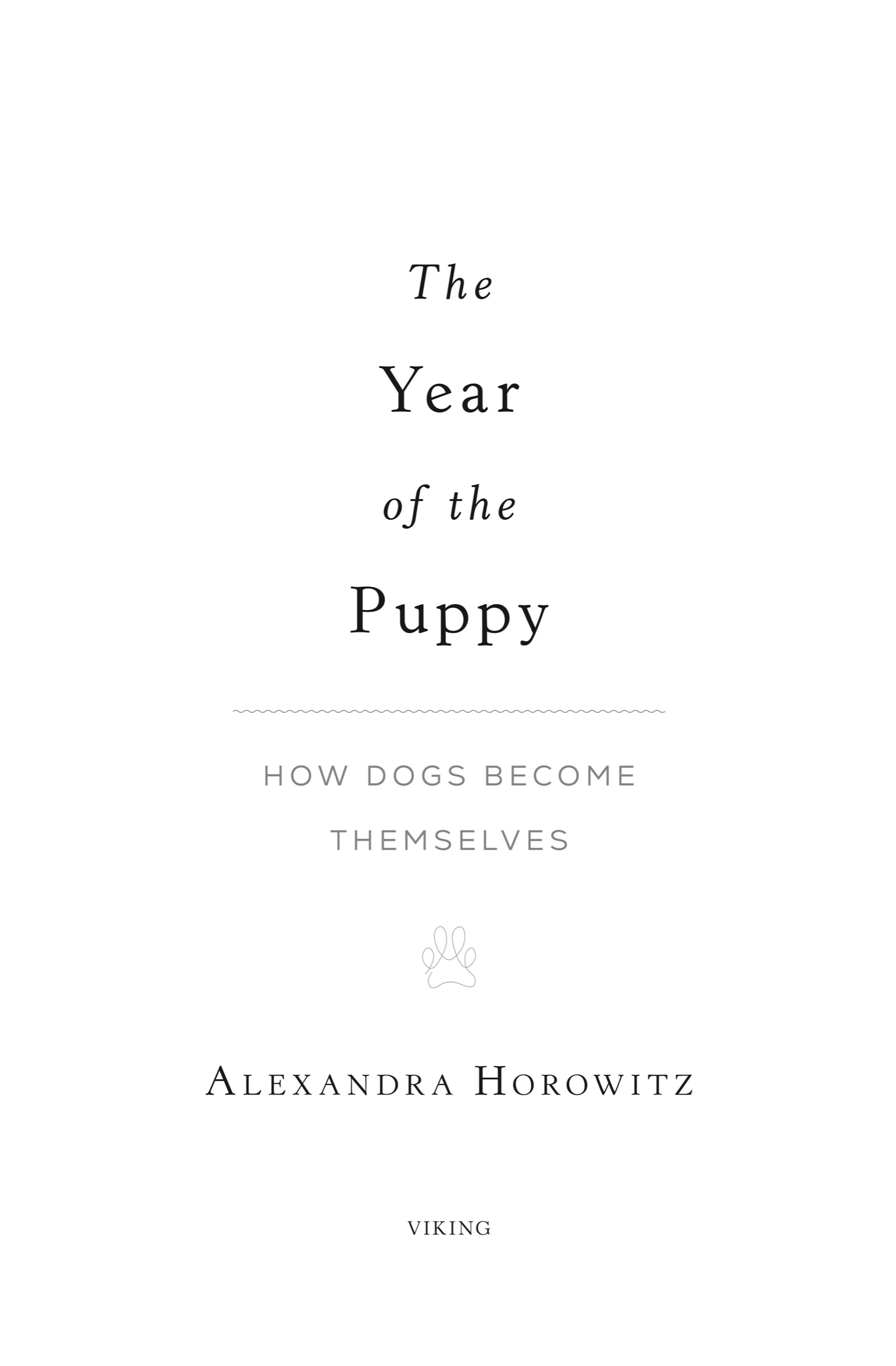
VIKING
An imprint of Penguin Random House LLC
penguinrandomhouse.com
Copyright 2022 by Alexandra Horowitz
Penguin Random House supports copyright. Copyright fuels creativity, encourages diverse voices, promotes free speech, and creates a vibrant culture. Thank you for buying an authorized edition of this book and for complying with copyright laws by not reproducing, scanning, or distributing any part of it in any form without permission. You are supporting writers and allowing Penguin Random House to continue to publish books for every reader.
Drawings on by Ogden Horowitz Shea.
library of congress cataloging-in-publication data
Names: Horowitz, Alexandra, author.
Title: The year of the puppy: how dogs become themselves / Alexandra Horowitz.
Description: First edition. | New York: Viking, an imprint of Penguin Random House LLC, [2022] | Includes bibliographical references and index.
Identifiers: LCCN 2022015113 (print) | LCCN 2022015114 (ebook) | ISBN 9780593298008 (hardcover) | ISBN 9780593298015 (ebook)
Subjects: LCSH: Puppies. | PuppiesGrowth. | DogsBehavior.
Classification: LCC SF426.5 .H6725 2022 (print) | LCC SF426.5 (ebook) | DDC 636.7/07dc23/eng/20220706
LC record available at https://lccn.loc.gov/2022015113
LC ebook record available at https://lccn.loc.gov/2022015114
Cover design: Colin Webber
Cover photograph: Shaina Fishman
Designed by Cassandra Garruzzo Mueller, adapted for ebook by Cora Wigen
pid_prh_6.0_140874740_c0_r0
for Ammon, at last
Not to have known him as a frisky young dog, to have missed his entire puppyhood! I dont feel just sad, I feel cheated.
Sigrid Nunez, The Friend (of dog Apollo)
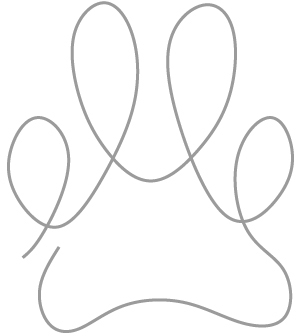
I peek in the rearview mirror and see her asleep in the back seat. Shes outgrown the little donut-shaped dog bed she first used and now she is more lying on it than in it: her head and shoulders are fully on my son, O.s, lap.
Its slowly changing with her. Its that she folds her ears back against her head as she greets me. Its her new, rabbit-legged sitting posture. Its her sitting beside me in the car en route to the city, just the two of us in wordless conversation. Its that she will now jump fully onto my lap, and then snuffle pig-like for a kiss. She chases her tail. She digs into the shoebox of toys and takes everything out, batting a ball around and flipping the long-legged and spindly Grinch around her head, banging herself on her sides. She has a way with each of us in the morning: aroooo! she calls, when we enter the room where shes sleeping. She has a way with each of the dogs. She and the cat are working it out, licking each other in turns. Its that even as she outgrows her dog bed she is fitting into the family.
I met her right after she was born.
Our family did not need a puppy. We are three humans, two dogs, and a cat; our days are rich with interactions, and our home is replete with animal fur. Sometimes, though, an idea grips me. It appears from thin air, as though I simply walked into it and breathed it in. And once Ive taken it in, it circulates in my mind, gradually and then relentlessly breaking through the hum of my brains background noise. This time, the idea was simple: puppy.
Its a popular idea, puppies. But it was as distant a notion to me as the prospect of hand-raising a snow leopard. As attracted as I am to puppies guileless manner, to their clumsy gait, and to the bigness of their excitement to see a person or their alarm at a bird taking flight, I was not attracted to the idea of living with one. For one thing, there are plenty of puppies about. I need only walk out of our apartment in New York City to see puppiesto see people with puppies, the people blearily standing in attendance with an over-long leash waiting for a puppy to remember to pee. For another, one of the satisfactions of adopting dogs from shelters, as our family has always done, is knowing we are taking home a dog who needs a home. Often, that dog is not a young puppy, but a dog who has already lived some life. I did not want to be implicated in making a dog who would need a home.
So a new puppy was off the tableor so I thought. Our last adoption, eight years earlier, was of three-and-a-half-year-old Upton, already eighty pounds of hound, candor, and goofiness when we met him. He arrived at our home needing ACL surgery for an injury long suffered and never addressed. And he arrived with a mysterious set of fearsof noises, of his shadowand with, it seemed, no experience at all of the things that were to become the substance of his life with us: walking on leash, sidewalks, elevators; people wanting to pet him, dogs wanting to sniff him. We met him at a shelter to which he had been returned as a three-year-old (Reason for return: have too many dogs) after having been adopted from the same place as a puppy. Thus, included in the paper trail of his life that was delivered to us was a photo of baby Upton, all ears and smile.
I think that is when I first breathed in the idea. Who was he as a puppy? I wanted to know. The only sorrow of coming to know Upton was the great mystery of his life before us: of where those fears came from; and of not being able to reach back in time and make it right. This sentiment is not uncommon. Few of us meet our dogs at Day One. The dog who will, eventually, become an integral part of our family, our constant companion and best friend, is born without us, into a family of her own. Her parents contribute genetically and, in the case of the mother, substantially after birth, to what kind of dog this young wiggly grub of a puppy will become. Her littermates, the world around her, the sounds and smells and sensations she is exposed to, all will influence her personality. By eight weeks of age, she is developmentally equivalent to a year-old human babywith all the walking, chattering, world-exploring milestones in her pastand she still wont be meeting her human family for weeks or months. When she first sniffs the human visitors who pack her into the car at the breeders, or whisk her off from a shelter and bring her home, she is already partly who she will be.
Years went by, and the puppy idea was displaced by louder and more urgent ideas. But it bubbled up again as our dogs passed their eleventh and twelfth birthdays, officially well into geriatric, in veterinary terms. We could not avoid the inevitable ending of their lives, but we might let them influence the next dog we got to know. Who better to teach a new dog about the worldabout our worldthan our crazy wonderful dogs? My son and husband made approving noises when I let the idea float out of my mouth and into the room.
I have no dearth of dogs in my life. Not only do I live in a city bursting with dogsmany of them so completely socialized to urban living that they will not even break stride if you reach down to tickle their head as they passbut I live with two already. In addition to Upton, our family includes Finnegan, a charming and endearing character who has endured the introduction of a child, another dog, and a cat with only the rare dagger-filled glare at us for so ruining his life. And I am a scientist of dogs: I study their behavior to try to understand their minds. I founded and run the Dog Cognition Lab at Barnard College, where researchers and I observe dogs who come onto campus with their people to participate in our experiments, or who submit to our gaze at their homes or in the parks. As a scientist and author, I have surely typed the word dog tens of thousands of times.
Font size:
Interval:
Bookmark:
Similar books «The Year of the Puppy : How Dogs Become Themselves»
Look at similar books to The Year of the Puppy : How Dogs Become Themselves. We have selected literature similar in name and meaning in the hope of providing readers with more options to find new, interesting, not yet read works.
Discussion, reviews of the book The Year of the Puppy : How Dogs Become Themselves and just readers' own opinions. Leave your comments, write what you think about the work, its meaning or the main characters. Specify what exactly you liked and what you didn't like, and why you think so.

